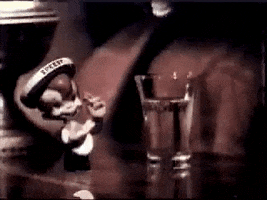Rx for Prescription Drugs
By Dean Baker and Gerald Scorse
 Prescription drugs have long provided two bad examples of
American exceptionalism. They cost three-to-four times more than anywhere else, and we’re one of only two countries in the world that allows prescription
drug advertising to consumers.
Prescription drugs have long provided two bad examples of
American exceptionalism. They cost three-to-four times more than anywhere else, and we’re one of only two countries in the world that allows prescription
drug advertising to consumers.
Far better to be like everybody else. Americans deserve drug
prices in line with those in other countries. They don’t deserve a constant
barrage of confusing and misleading ads.
Advertising is the lesser of two evils and the simplest to
counter: just stop it already. Important voices have already made that
recommendation.
TV commercials for prescription drugs always tell consumers
to “ask your doctor.” But the companies that pay billions to run the ads aren’t listening to
doctors. For the last five years, the American Medical Association has called for a ban on direct-to-consumer advertising of such
drugs.
Here’s what the drug makers are
ignoring: “[The AMA’s] vote in support of an advertising ban reflects concerns
among physicians about the negative impact of commercially-driven promotions,
and the role that marketing costs play in fueling escalating drug
prices….Direct-to-consumer advertising also inflates demand for new and more
expensive drugs, even when these drugs may not be appropriate.”
Cutting drug prices presents a bigger challenge than cutting
out drug advertising, but the rewards would be huge.
Americans will spend over $500 billion on prescription drugs in 2020 (more than
2.2 percent of gross domestic product). The basic research underlying these
drugs is almost always carried out with taxpayer dollars at
university or government research labs, mostly through the National Institutes
of Health.
The research findings used to stay in the public domain,
available to any company that wanted to use them. In 1980, the bipartisan Bayh-Dole Act made a watershed change: it allowed for the
rights to be turned over to private parties.
While the point of Bayh-Dole was to hasten the harnessing of
basic research, it also sent the price of drugs soaring. Spending on
prescription drugs had been largely stable at around 0.4 percent of GDP from 1960 to
1980. In the decade after Bayh-Dole it had doubled to 0.8 percent and it
doubled again in the next decade.
We now have this bizarre mindset that we have to give drug
companies patent monopolies to get them to develop drugs or vaccines, even when
the government is paying for the bulk of the research. The pandemic is showing
the absurdity of this practice.
As one example Gilead Sciences developed the drug
remdesivir, largely with government funding, as a treatment for Ebola. While it
turned out not to be an effective treatment for Ebola, it is effective in
treating the coronavirus. Gilead is charging private insurers $520 for a single vial of remdesivir. Its actual production cost has
been estimated at less than a dollar a dose.
The Trump Administration is taking the same logic to
developing a vaccine. Operation Warp Speed is a $10 billion government program to
develop, produce and distribute a coronavirus vaccine. At least four Warp Speed
contracts (to Janssen, Regeneron, Genentech and Ology Bioservices) exclude
standard language “meant to ensure that products developed with federal funds
are affordable and widely available.”
In effect, the government is putting up most of the money
and taking the big risks. If one or more of these developers hit a dead end,
they will still have been paid for their work, the government is out the money.
But if they do succeed and develop a life-saving vaccine, the government will
give them a patent monopoly and allow them to charge whatever they want, with
no restriction whatsoever.
It shouldn’t be too radical a proposition to say that drug
companies only get paid once. When the government pays for the research, the
drugs or vaccines developed are in the public domain, so they can be produced
and sold by anyone as cheap generics.
It would be a great thing for humanity if a low-priced
coronavirus vaccine became the first example of a new prescription drug policy
in America.
This article first appeared at www.nydailynews.com.
Baker is senior economist at the
Center for Economic and Policy Research. Scorse writes on taxes and is a frequent contributor to Progressive Charlestown.